Pakistan could potentially be facing a water scarcity in addition to a power crisis. This comes as a result of a power failure at the crucial Dhabeji pumping station, which is in charge of supplying water to the entire city of Karachi. Water service in the city on Monday was also affected by the sudden outage. Let’s take a closer look. Also read: Sticker Shock: Why power bills in Pakistan are out of control Water crisis Pakistan-based ARY News quoted a Water Corporation spokesperson as saying that the 72-inch diameter line, known as line number 5, is impacted by the power outage. According to the spokesperson, representatives from the water corporation are on the scene and thoroughly inspecting the affected line in an effort to pinpoint the source of the issue. Bulkwater Corporation’s chief engineer confirmed that actions are being taken to repair the damaged pipe in order to mitigate any potential inconvenience for city residents caused by the water supply outage, as reported by the outlet, reported ANI. The city’s water supply has been switched to alternative lines, according to the chief engineer, while the damaged pipe is being repaired. The water crisis in Karachi comes at a challenging time when the neighbouring country is already reeling from a power crisis. Also read: IMF-Pakistan reach $3 billion bailout: How will this help nation? Power bills and protests In Pakistan, rising electricity costs have brought long-simmering public outrage to a boil. Massive protests have now broken out in protest of the rising cost of living. The last straw appears to be the excruciating increase in electricity prices. Protests against expensive electricity prices have lately taken place in a number of Pakistani cities. People have blocked highways, burned tyres, and chanted anti-price hike slogans in Peshawar, Karachi, Lahore, Multan, and Rawalpindi, which have resulted in high bills for households and companies in July, according to Indian Express. The trader organisations and Jamaat-e-Islami have called for the protests. [caption id=“attachment_13081162” align=“alignnone” width=“640”] A man walks with a tea kettle along closed market, during a shutter-down strike called by the traders, against the hikes in power billings, during a protest in Karachi, Pakistan. Reuters[/caption] The protesters have refused to pay the high electricity bills for July, claiming that they are already struggling to make ends meet due to high inflation, high unemployment, and high load shedding. According to trade unions, the massive bills will have a devastating impact on many enterprises. For low- to middle-class homes, the average cost of power has “more than doubled since May,” according to the Pakistani news agency Dawn. Numerous strikes by thousands of Pakistani business owners over skyrocketing energy and fuel costs are causing significant unrest ahead of the country’s elections. In Lahore, Karachi, and Peshawar, there were widespread market closures on Saturday; posters protesting “the unreasonable increase in electricity bills and taxes” were placed in abandoned bazaars. “Everyone is participating because the situation has become unbearable now,” Lahore’s Township Traders Union president Ajmal Hashmi told AFP, adding, “Some relief must be given so people can put food on the table.” Anwaar-ul-Haq Kakar, the interim prime minister, claimed on Friday that there is no “second option” and citizens will have to pay inflated rates. “When you subsidise, you shift your fiscal obligations to the future. Rather than addressing the issue, you just delay it,” he told reporters in Islamabad, according to Al Jazeera. The Energy Ministry had finished a list of suggested ways to bring relief to the people, according to the nation’s acting information minister, Murtaza Solangi, who said on Tuesday that this would be presented to the federal cabinet for approval. [caption id=“attachment_13081182” align=“alignnone” width=“640”]
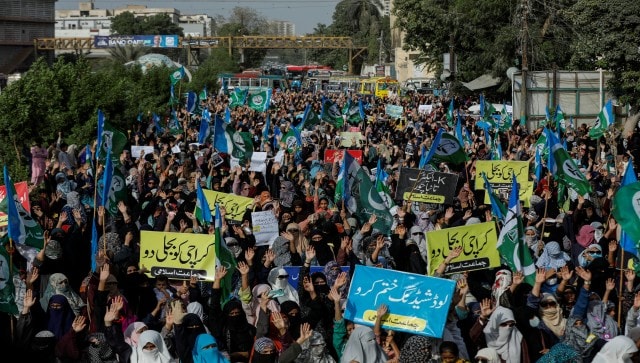 Women supporters of the religious and political party Jamaat-e-Islami (JI) chant slogans as they hold signs against the hikes in power billings and power outages, during a protest in Karachi, Pakistan. Reuters[/caption] Also read: Meet the first woman to head Indian mission in Pakistan The reason for the power bill hike The economy of Pakistan has been crippled by decades of mismanagement and chaos, and this summer Islamabad was pressured into an agreement with the International Monetary Fund (IMF) to avoid default. But the global lender demanded cutting back on well-liked subsidies that served as a cost-of-living buffer. Prices for petrol and electricity have soared. According to Indian Express, Kristalina Georgieva, Managing Director and Chair of the IMF, said in a statement after the deal, “The anticipated improvement in tax revenues is critical to strengthen public finances, and to eventually create the fiscal space needed to bolster social and development spending…In parallel, the authorities urgently need to strengthen energy sector viability by aligning tariffs with costs, reforming the sector cost base, and better-targeting power subsidies.” As a result, in July, the rates for increasing the power tariff varied depending on the type of consumer. Pakistan’s officials have also referenced June’s rising global energy prices in addition to the IMF agreement. But there are also structural issues at work. As an editorial in Dawn said, “The bad news is that electricity prices in the country will continue to climb even after a downturn in international fuel prices as long as there is no move to undertake long-standing power sector reforms in order to sharply cut system losses, control the allegedly rampant corruption in the distribution companies, stop widespread power theft by the powerful, and, more importantly, reduce reliance on imported fuels by shifting to local fuels for generation and encouraging renewable energy.” The government of Pakistan must balance the need to keep traders on board with adhering to IMF austerity measures because they have enormous power and an upcoming election. This week was the first time that the government increased the price of petrol past the 300 Pakistani rupees ($1) per litre (0.26 gallons) mark, reported Al Jazeera. Notably, this exchange rate to the dollar is the lowest since the country’s founding 76 years ago. According to recent data, year-on-year inflation in August was 27.4 per cent, up from an eight per cent increase in motor fuel prices in July.
Women supporters of the religious and political party Jamaat-e-Islami (JI) chant slogans as they hold signs against the hikes in power billings and power outages, during a protest in Karachi, Pakistan. Reuters[/caption] Also read: Meet the first woman to head Indian mission in Pakistan The reason for the power bill hike The economy of Pakistan has been crippled by decades of mismanagement and chaos, and this summer Islamabad was pressured into an agreement with the International Monetary Fund (IMF) to avoid default. But the global lender demanded cutting back on well-liked subsidies that served as a cost-of-living buffer. Prices for petrol and electricity have soared. According to Indian Express, Kristalina Georgieva, Managing Director and Chair of the IMF, said in a statement after the deal, “The anticipated improvement in tax revenues is critical to strengthen public finances, and to eventually create the fiscal space needed to bolster social and development spending…In parallel, the authorities urgently need to strengthen energy sector viability by aligning tariffs with costs, reforming the sector cost base, and better-targeting power subsidies.” As a result, in July, the rates for increasing the power tariff varied depending on the type of consumer. Pakistan’s officials have also referenced June’s rising global energy prices in addition to the IMF agreement. But there are also structural issues at work. As an editorial in Dawn said, “The bad news is that electricity prices in the country will continue to climb even after a downturn in international fuel prices as long as there is no move to undertake long-standing power sector reforms in order to sharply cut system losses, control the allegedly rampant corruption in the distribution companies, stop widespread power theft by the powerful, and, more importantly, reduce reliance on imported fuels by shifting to local fuels for generation and encouraging renewable energy.” The government of Pakistan must balance the need to keep traders on board with adhering to IMF austerity measures because they have enormous power and an upcoming election. This week was the first time that the government increased the price of petrol past the 300 Pakistani rupees ($1) per litre (0.26 gallons) mark, reported Al Jazeera. Notably, this exchange rate to the dollar is the lowest since the country’s founding 76 years ago. According to recent data, year-on-year inflation in August was 27.4 per cent, up from an eight per cent increase in motor fuel prices in July.
Also read: Does Pakistan’s Imran Khan have a future in politics after being jailed? Pakistan in turmoil Pakistan’s parliament was dissolved last month, and a caretaker government has been in power ever since. Its task is to oversee elections, though no date has been set. Former Prime Minister Shehbaz Sharif, who was in charge of a weak coalition that struggled to revive the economy during its brief time after ousting Imran Khan in 2022, negotiated the conditions of the IMF agreement as well as the temporary leadership. Khan, the most popular politician in Pakistan, is currently imprisoned and fighting a string of court suits that, in his opinion, are meant to prevent him from running for office. The nation’s security situation is also getting worse as a result of the suicide attack on Thursday that claimed the lives of nine soldiers, as per AFP. With inputs from agencies


)
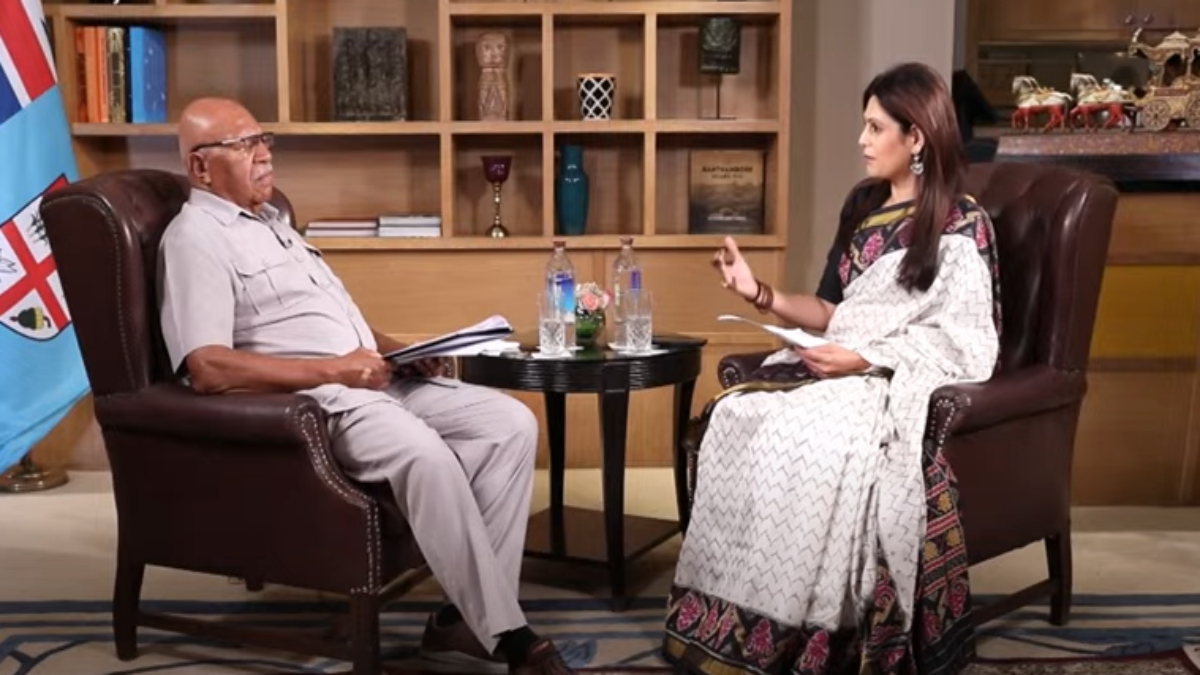)
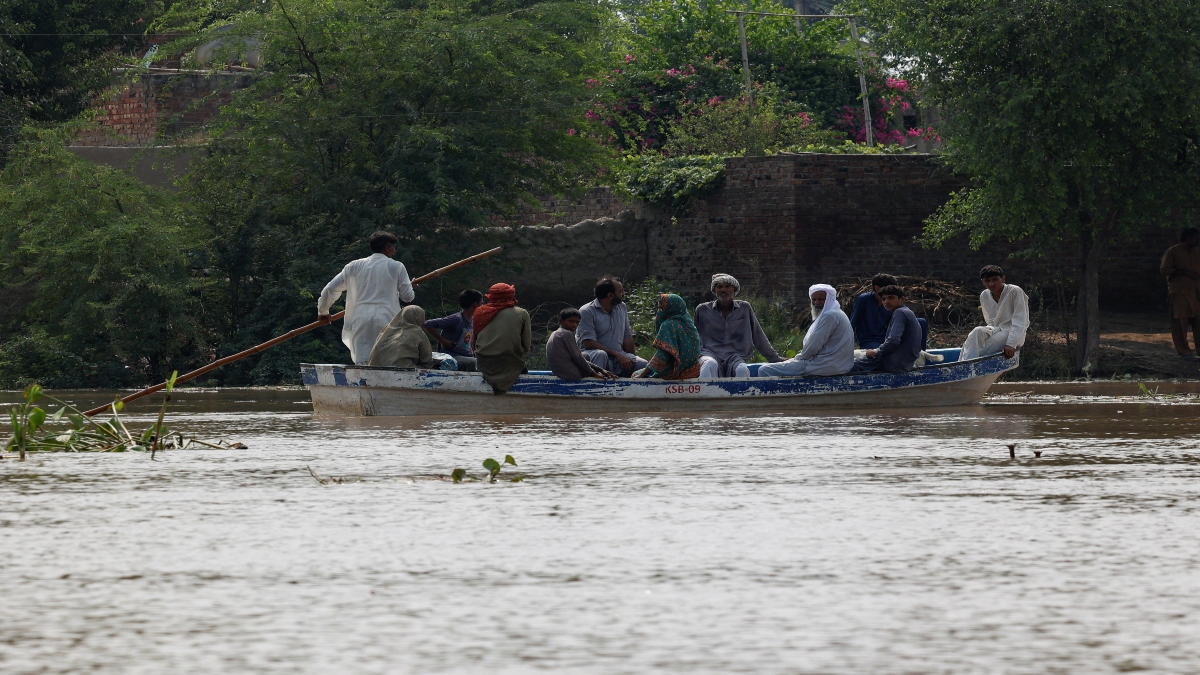)
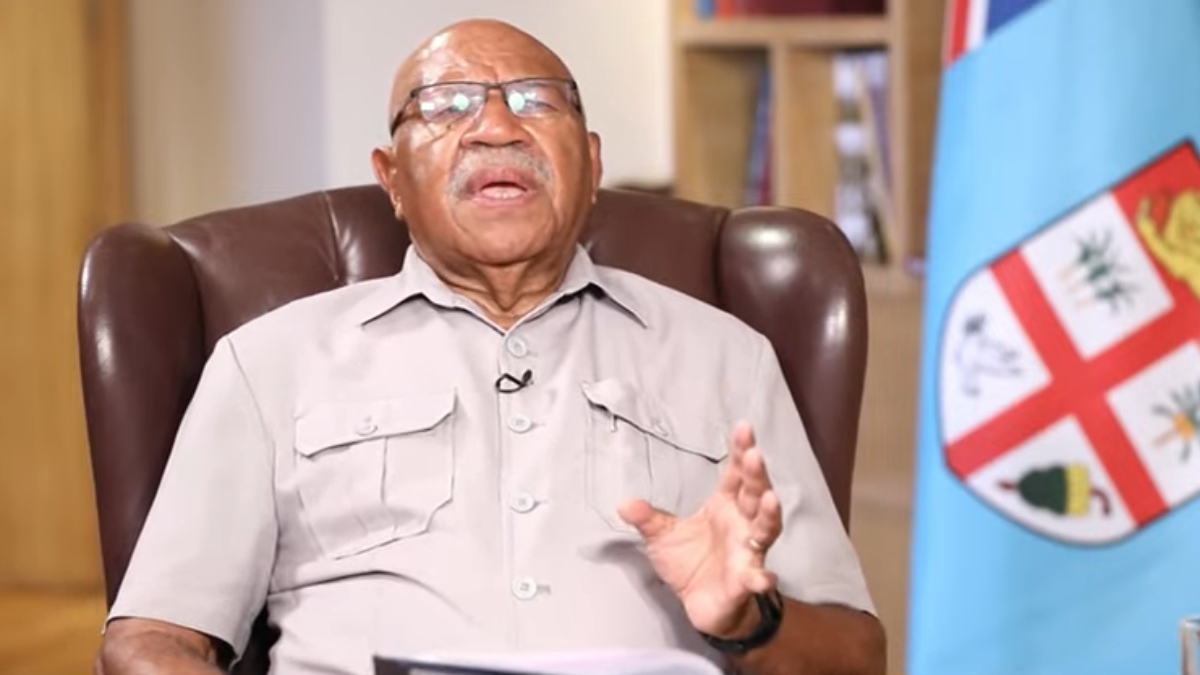)
)
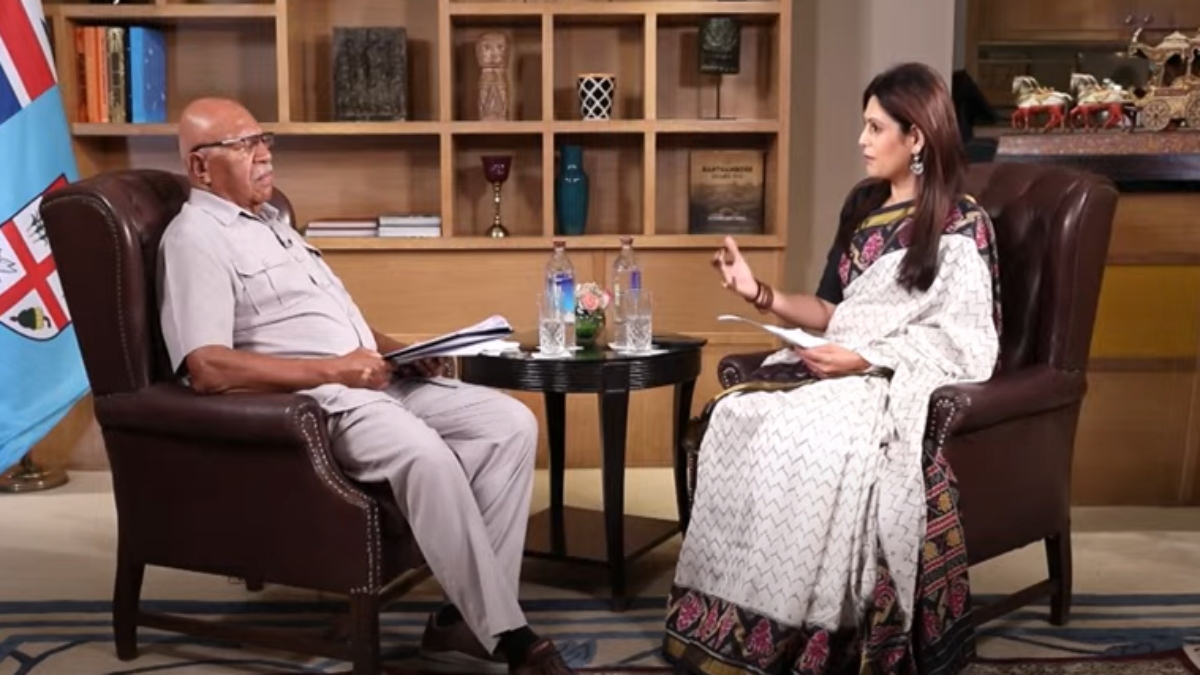)
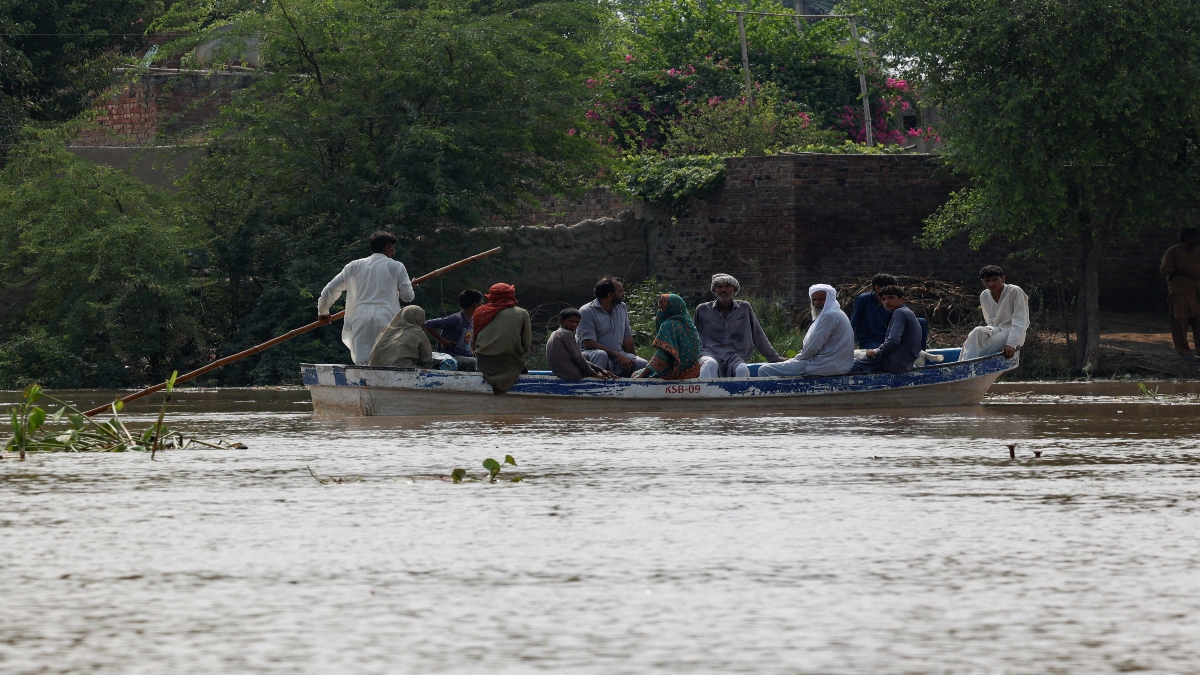)
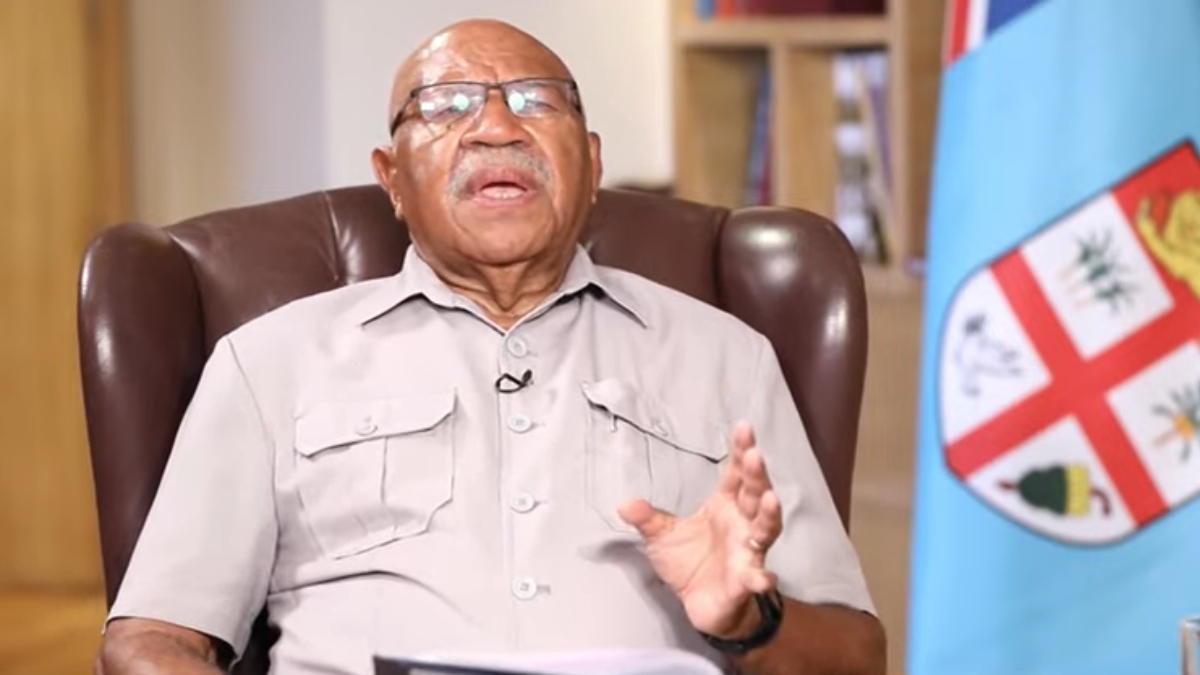)
)



